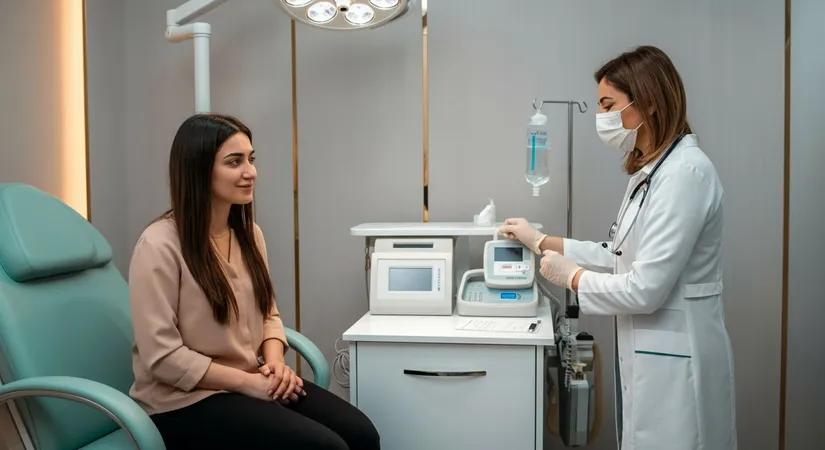Understanding the Basics of Pregnancy Testing
Pregnancy testing is a crucial aspect of women’s health that aids in early detection and effective prenatal care planning. The significance of accurate testing cannot be overstated, as it sets the foundation for a healthy pregnancy journey. Pregnancy tests typically work by detecting the hormone human chorionic gonadotropin (hCG) in urine or blood. This hormone is produced shortly after the embryo attaches to the uterine lining. Early detection through these tests helps in making informed decisions promptly.
Types of Pregnancy Tests
Common types of pregnancy tests include urine tests and blood tests. Each offers different advantages in terms of accessibility and accuracy. Urine tests are available over-the-counter, offering privacy and convenience. Blood tests, on the other hand, conducted in medical settings, can detect lower levels of hCG due to their higher sensitivity and are used for more precise diagnosis.
- Early detection
- Ease of use
- Cost-effectiveness

Exploring Advanced Diagnostic Methods
With advancing healthcare technology, pregnancy testing methods have evolved beyond traditional urine or blood tests. Modern diagnostics offer higher accuracy and earlier detection, crucial for proactive prenatal care. Advanced diagnostics include home testing kits with digital readouts and lab-based blood tests that provide precise hormonal levels. These improvements empower women by providing information with minimal delays.
Cutting-edge Technologies in Use
Recent advancements in pregnancy testing involve digital home pregnancy tests and non-invasive prenatal testing (NIPT). These technologies enable expectant mothers to receive results that are not only rapid but also coupled with additional health insights. Digital tests often come with Bluetooth features that track cycle data, providing continuous health monitoring.
- Enhanced accuracy
- More detailed insights
- User-friendly designs
The Role of Technology in Modern Pregnancy Tests
Technology plays a transformative role in healthcare, and pregnancy testing is no exception. The integration of advanced technology into pregnancy tests has made them more reliable and accessible than ever before. From digital home tests to sophisticated lab equipment, technology ensures precision and ease, thereby revolutionizing the way pregnancy is confirmed.
Technological Innovations
Impressive innovations in the realm of pregnancy diagnostics include smartphone-integrated testing kits and the application of AI and machine learning in diagnostics. These tools allow users to engage with interactive interfaces to better understand their health status. The seamless connectivity between devices and health applications marks a significant leap in personal health management.
- Real-time results
- Enhanced privacy
- Remote consultation facilitation
Ethical Values in Pregnancy Testing Practices
Ethics in pregnancy testing are as crucial as the test’s accuracy itself. The practice of ensuring respect, confidentiality, and informed consent underpins their ethical administration. Ethical considerations demand that each individual is treated with dignity and that their personal and confidential data remain protected at all stages of the testing process.
Principles of Ethical Testing
Centers and clinics must adhere to principles such as obtaining informed consent, maintaining privacy, and practicing cultural sensitivity to ensure ethical testing practices. These principles help build patient trust and reinforce the reliability of testing services provided.
- Trust in healthcare systems
- Protection of patient rights
- Promotion of equitable healthcare access
Scientifically Proven Techniques for Accurate Results
Scientific innovation has made it possible to enhance the accuracy of pregnancy detection methods. Techniques like blood testing now offer near-perfect results, leading to better healthcare outcomes. Various scientifically validated methods ensure that results are consistent and accurate, minimizing the margin of error significantly.
Validated Techniques
Advanced methods such as HCG blood testing and high-sensitivity urine tests form the backbone of accurate pregnancy diagnosis. These techniques offer precision that aids in effective healthcare planning, assuring both expectant mothers and healthcare providers of the results.
- High precision
- Early intervention opportunities
- Assurance of health status
Future Trends in Pregnancy Testing and Wellness
The future of pregnancy testing is promising, with trends pointing towards even greater convenience and integration into wellness routines. Pregnancy testing’s future is interlinked with digital health and personalized medicine. Looking forward, there is immense potential in integrating wellness and prenatal care with advanced diagnostic tools, ensuring comprehensive healthcare for mother and child.
Emerging Trends
Upcoming trends highlight the integration of pregnancy tests with digital health records and personalized hormonal monitoring. These innovations aim at providing holistic support and extensive insights into maternal health, thereby reinforcing a proactive approach to wellness.
- Enhanced maternal and fetal health
- Predictive health management
- Holistic healthcare approach
